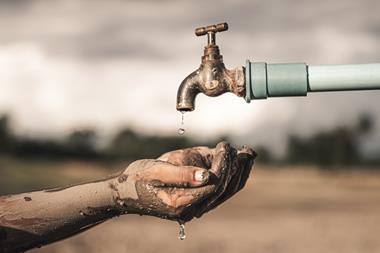Changes in the food sector, electricity, transport, industry, buildings and land-use can reduce greenhouse gas emissions
More than a century of burning fossil fuels as well as unequal and unsustainable energy and land use has led to global warming of 1.1°C above pre-industrial levels.
This has resulted in more frequent and more intense extreme weather events that have caused increasingly dangerous impacts on nature and people in every region of the world.
Every increment of warming results in rapidly escalating hazards. More intense heatwaves, heavier rainfall and other weather extremes further increase risks for human health and ecosystems.
When the risks combine with other adverse events, such as pandemics or conflicts, they become even more difficult to manage. These are some of the stark findings of scientists in the latest Intergovernmental Panel on Climate Change (IPCC) report.
Industries must take action
But it is not too late. Taking the right action now could result in the transformational change essential for a sustainable, equitable world.
There are multiple, feasible and effective options to reduce greenhouse gas emissions and adapt to human-caused climate change, and they are available now, said scientists.
Changes in the food sector, electricity, transport, industry, buildings and land-use can reduce greenhouse gas emissions.
At the same time, they can make it easier for people to lead low-carbon lifestyles, which will also improve health and wellbeing. A better understanding of the consequences of overconsumption can help people make more informed choices.
“Transformational changes are more likely to succeed where there is trust, where everyone works together to prioritise risk reduction, and where benefits and burdens are shared equitably,” said IPCC Chair Hoesung Lee
Close to a tipping point
In this decade, accelerated action to adapt to climate change is essential to close the gap between existing adaptation and what is needed.
Meanwhile, keeping warming to 1.5°C above pre-industrial levels requires deep, rapid and sustained greenhouse gas emissions reductions in all sectors.
Emissions should be decreasing by now and will need to be cut by almost half by 2030, if warming is to be limited to 1.5°C.
Climate resilient development becomes progressively more challenging with every increment of warming. This is why the choices made in the next few years will play a critical role in deciding our future and that of generations to come.
“Accelerated climate action will only come about if there is a many-fold increase in finance. Insufficient and misaligned finance is holding back progress.”
There is sufficient global capital to rapidly reduce emissions, if barriers are reduced
Increasing finance to climate investments is important to achieve global climate goals. Governments, through public funding and clear signals to investors, are key in reducing these barriers. Investors, central banks and financial regulators can also play their part.
If technology, know-how and suitable policy measures are shared, and adequate finance is made available now, every community can reduce or avoid carbon-intensive consumption, insists IPCC.




















No comments yet